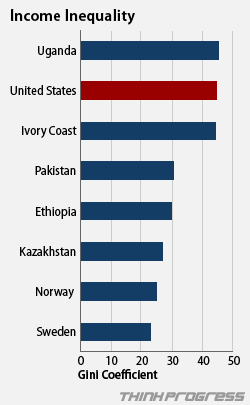This article was authored by our neoliberal Democratic saviors on the new and improved Cat Food Committee (h/t digby). We are so screwed:
Together We Can Beat the Deficit
By PATTY MURRAY, MAX BAUCUS AND JOHN KERRY
Our country has long been a beacon of light in the world because the American people always come together when times are tough. Over the past few months, in debating the debt ceiling and deficit reduction, that light of common cause has appeared to flicker at times in our nation’s capital. As appointees to the Joint Select Committee on Deficit Reduction-12 members of Congress charged with finding $1.5 trillion in deficit reduction over the next decade-we hope to remedy that.
snip
Make no mistake, this is an important moment for our country. Millions of Americans are still hurting, working overtime to pay the bills, struggling to find a job and a way forward for their families. Trillions of dollars in private capital are sitting on the sidelines because businesses are not yet confident enough in our economy or in their lawmakers to invest in the future. These families and businesses are demanding that this new committee work together to overcome the partisanship and brinksmanship of recent months and put our fiscal house in order.
The Standard & Poor’s downgrade of America’s credit rating was an unprecedented wake-up call for those who have for too long acted as if overheated rhetoric and dysfunction in Washington has no consequences for Main Street and working families. The shockwaves that roiled financial markets after the downgrade was a condemnation of Congress’s inability to address the unsustainable trajectory of our current fiscal policies.
snip
None of us ran for office arguing that the United States should see its credit rating downgraded. Nobody ever campaigned in favor of mountains of debt or championed the idea that every American’s interest rates should go up. And no one has ever gone into a debate pledging that China and India should own this economic century because we can’t make our democracy work here at home.
This moment demands leadership, but it also demands consensus. The Joint Select Committee on Deficit Reduction was set up to require bipartisanship, and we are going to work hard to achieve it. We know that each of us comes into this committee with clear ideas on the issues and what our priorities are for our nation. But a solution can only be found by merging these priorities across party lines and finding a solution that works for the American people.
We know that our goal is to reduce spending. But we also know that America faces not just a budget deficit but also a jobs deficit. Nobody on this committee would be happy if we reduced the budget deficit but even more Americans end up losing their jobs.
So we are ready to get to work with our colleagues on both sides of the aisle to report out a balanced plan, with the shared sacrifices this moment requires. One that moves past the partisan rancor, puts our nation back on strong fiscal footing, and allows us to continue shining bright in the world in this generation and for generations to come.
Like digby said: “Confidence Fairy, “shared sacrifice”, “balanced approach”, China bashing, the whole nine yards.”
Then there is Obama’s less than inspiring not a plan yet and the Chamber of Commerce clamoring for “for “reform of entitlement programs” like Medicare and Medicaid (which means cutting spending on these programs).”
The stocks of the maker of Preparation H may just save the tanking stock market

 With states and cities struggling to balance their budgets with lay offs of workers, cuts to benefits and wages, as well as, reduction of aid to schools, hospitals, clinics, and other agencies,
With states and cities struggling to balance their budgets with lay offs of workers, cuts to benefits and wages, as well as, reduction of aid to schools, hospitals, clinics, and other agencies, 


 Well, former President Bill Clinton thinks that the US economy could use a little help from a friend. For the first time since Pres. Clinton started his Global Initiative, it
Well, former President Bill Clinton thinks that the US economy could use a little help from a friend. For the first time since Pres. Clinton started his Global Initiative, it
Recent Comments